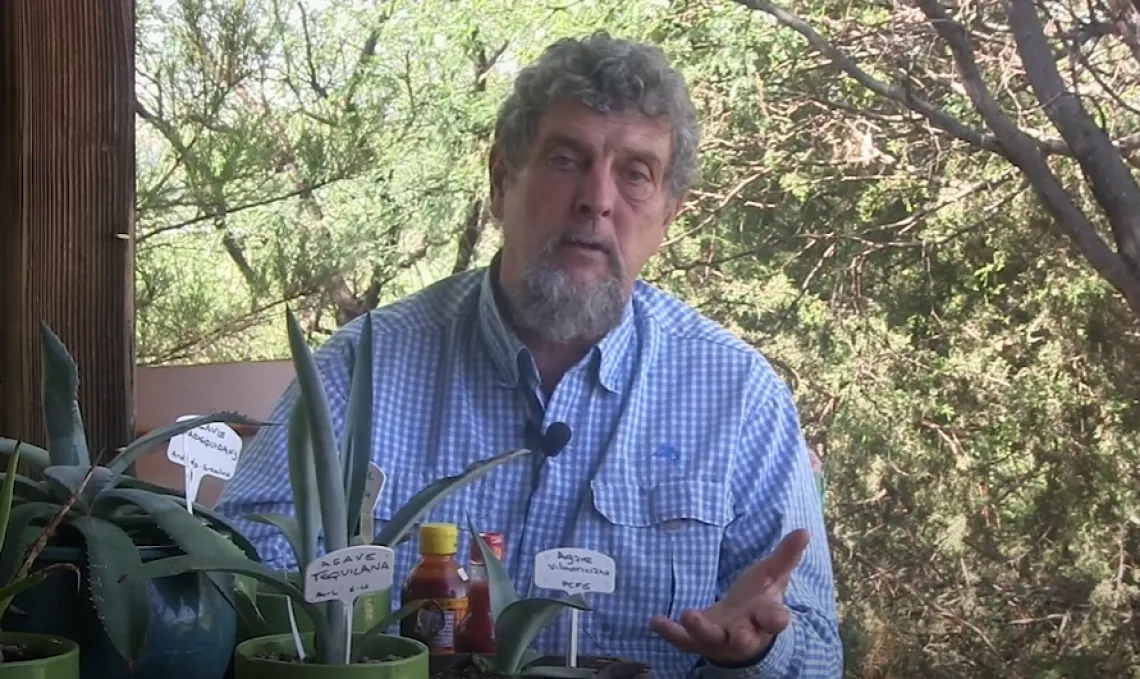USDA awards over $4.7M to support and promote 'climate-smart' food production

Dr. Gary Nabhan, project principal investigator
In arid Arizona, groundwater pumping and the transportation of river water generate more carbon emissions than any other agricultural activities in the state. University of Arizona researchers are working to help farmers tackle that challenge and to build a more resilient food future that relies less on water and more on native crops.
The UArizona College of Social and Behavioral Sciences and College of Agriculture and Life Sciences have teamed up with the University of Maryland and three Arizona nonprofits – Tucson City of Gastronomy, the Arizona-Sonora Desert Museum and Local First Arizona – to form the Arizona Partnership for Climate-Smart Food Crops, announced Tuesday.
The three-year project, funded by over $4.7 million from the U.S. Department of Agriculture, will focus on promoting climate-smart food production practices and helping farmers reduce water consumption and carbon emissions.
"While the climate challenges that Arizona faces can seem daunting, our researchers are among the world's best in water, agriculture and many other areas related to climate resilience. We are committed to ensuring the farmers and people of Arizona have the tools they need to adapt, and this project is a perfect illustration of that," said University of Arizona President Robert C. Robbins. "By coming together to study and implement the most climate-smart tools we have, we can ensure future in which we all thrive."
Arizona is one of the highest water users per acre for agriculture in any state, and pumping all that water across the state also has energy costs, said project principal investigator Gary Nabhan, a research social scientist in the UArizona Southwest Center and the Kellogg Endowed Chair in Southwestern Borderlands Food and Water Security.
"We are prepared to help farmers reduce their input costs and increase the value of their crops," he said.
The USDA grant will also fund the promotion and marketing of farmers' climate-smart products in ways that will increase farmers' return on investments in new agricultural practices.
"None of this matters if the farmers can't market their crops," Nabhan said.
The grant also allows the project team to use commercial test kitchens to identify culinary qualities of climate-smart crops, conduct consumer research, promote a desert seed-to-table program, and advance retail market development and a consumer awareness campaign.
Earlier this year, the USDA opened applications for projects to support America's climate-smart farmers, ranchers and forest landowners. The University of Arizona was one of the lead partners on this USDA initiative, said Gloria Montaño Greene, deputy undersecretary for farm production and conservation at the USDA, during a Tuesday UArizona news conference announcing the new partnership.
"(The University of Arizona is) joining a network that will be serving over 60,000 farms – 25 million acres – to be able to work on climate-smart production practices," the UArizona alumna said. "We are going to be reducing more than 60 million metric tons of carbon dioxide over the lives of these projects … which is like removing 12 million gas-powered vehicles from the road in one year. We know that agriculture is part of the solution."

